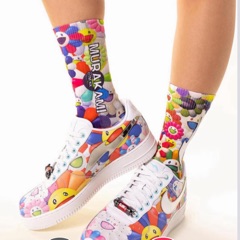After this annus horribilis, many are conjuring a renaissance in the name of progress. To others, however, real progress can be achieved only through revolution. Some of the questions we will pose in this Salon are: What and who defines a renaissance? What about a revolution? What is the difference between the two? Who is in charge of either? Are they mutually exclusive? Do they both lead to progress? For whom? Can the progress they summon be equitably distributed? What are the roles of culture, science, technology, and finance in a renaissance? And in a revolution? Can we define a renaissance as we are living through it? What power structures are inherent to both means of transformation?
The evening will commence with a brief introduction by Paola Antonelli, followed by equally brief presentations by—here in alphabetical order:
Tania Bruguera is a Cuban-born artist and activist whose work centers on questions of political power and control. She promotes the creation of artworks that are beneficial to society in drawing attention to injustice and violence, highlighting the use of art as a force for resistance.
Paul Friedland is a professor of political and cultural history at Cornell University, focusing on the French and French Atlantic in the Revolutionary period. His research is supported by the National Endowment for the Humanities and the John Simon Guggenheim Memorial Foundation, among other institutions.
Anand Giridharadas is the author of Winners Take All: The Elite Charade of Changing the World (2018.) He is also an editor-at-large at TIME, an on-air political analyst for MSNBC, and a visiting scholar at the Arthur L. Carter Journalism Institute at New York University.
Robyn C. Spencer is a historian that focuses on Black social protest after World War II, urban and working-class radicalism, and gender. She is an Associate Professor of History at Lehman College, City University of New York, and the author of the 2016 book The Revolution Has Come: Black Power, Gender, and the Black Panther Party in Oakland.
David Wallace-Wells is a journalist and author. His 2017 New York Magazine essay "The Uninhabitable Earth" was expanded into a book in 2019 and remains a crucial text on the impending impacts of the climate crisis. David is also a deputy editor at New York Magazine, where he writes extensively about climate change.
The presentations will be accompanied by the screening of a series of short videos cut specifically for Salon 36.
MoMA Research & Development provides information and critical tools to identify and explore new directions and opportunities for MoMA and the broader museum field. Learn more: momarnd.moma.org/salons/.
MoMA R&D is made possible by Allianz.
Subscribe for the latest videos and invitations to live events: mo.ma/subscribe
Explore the collection online: mo.ma/art
Plan your visit in-person: mo.ma/visit
Commit to art and ideas. Support MoMA by becoming a member today: moma.org/join
The comments and opinions expressed in this video are those of the speakers alone, and do not represent the views of The Museum of Modern Art, its personnel, or any artist.
Image: “Man, Controller of the Universe" by Diego Rivera
#art #museumofmodernart #moma #museum #modernart
Watch Video
Share
November 15, 2021
Posts
